First task finding and buying train tickets into Tokyo, we had flown into Narita airport which is further out than Hanira(Check spelling) and a 40 minute journey into the center of the city followed. Arriving at the hotel late morning we opted to fight the jetlag induced tiredness and set out to explore the bright lights of Ginza.
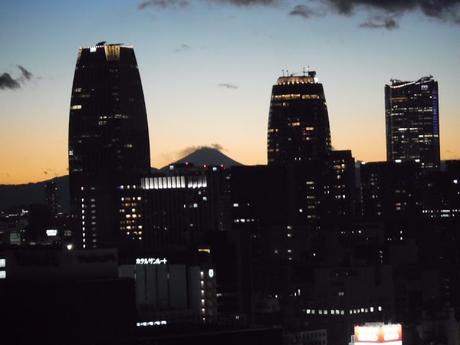
Mount Fuji from our hotel
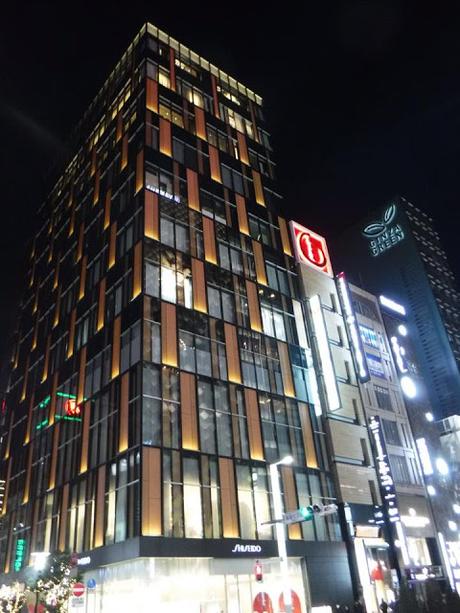
Stores in Ginza
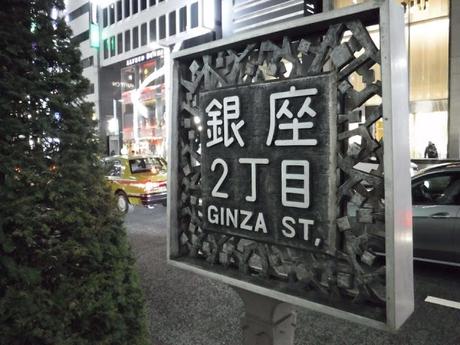
Ginza is an area famous for its departments stores and shops and on the weekend the main roads though the area are pedestrianised, something London should consider.
This first afternoon and evening we didn't wander far, both tired from the travel also slightly in awe of all the lights. Little did we realize that brighter lights were to follow, Ginza really is tame compared to other parts.
To try and minimise the impact of Jetlag we stayed up into the evening and set alarms for our usual morning routine, we have found this worked for us before, so hoped we would reset out body clocks quickly. Tokyo is 9 hours ahead of Londom. Relaxed and rested we set out this following morning to Tokyo Tower.
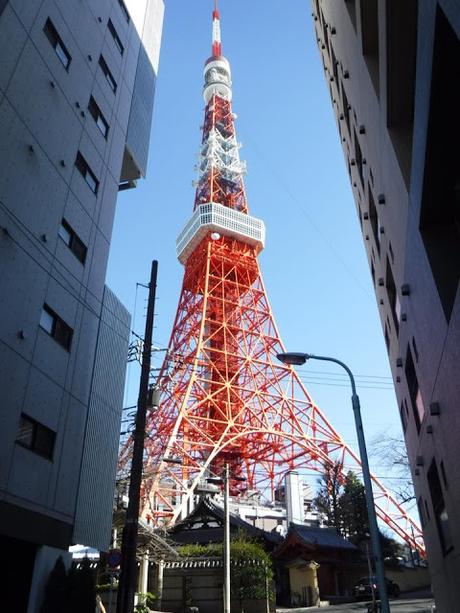
Tokyo Tower
After having a great view of both Mount Fuji and the Tower the night before from the hotel lobby we wanted to see what the city looked like from that vantage point. the tower was build in 1958 for communications and clearly took some inspiration from the Eifel Tower, although at 150 meters tall it's somewhat smaller than its Parisian counterpart.Sadly for us the higher if the two observation decks was closed for renovations so we had to opt for the lower of the two vantage points for a fairly modest 900 yen (£6.50/$8) Yet at xx meters above ground the views were still spectacular. The lack of other taller structures in the immigrate vicinity clearly helps too.
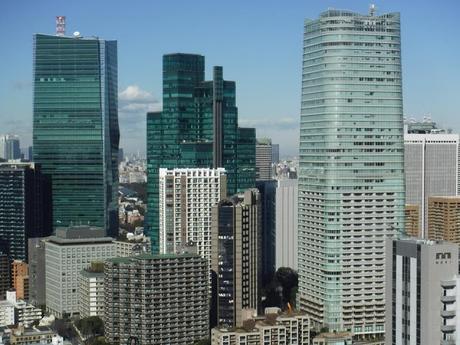
View from Tokyo Tower
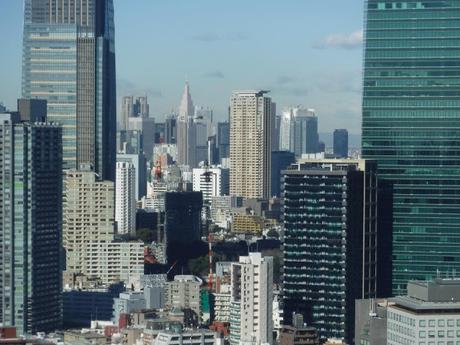
Close to the tower is Zojoji, a Buddhist temple badly damaged in the Second World War and reconstructed in the years that followed. We were fortunate to be there when the monks undertook a small service and were curious spectators to the chanting and musical tones. Photography wasn't permitted inside hence no photos. The grounds however were worth exploring, particularly with the contrast between the modern world and spiritual.
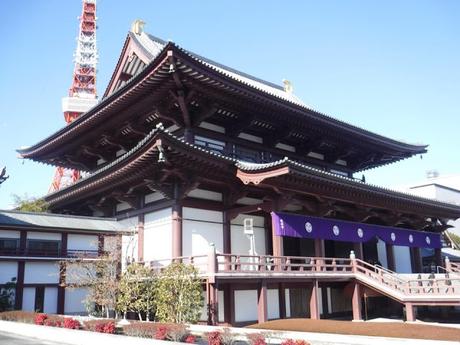
Zojoji
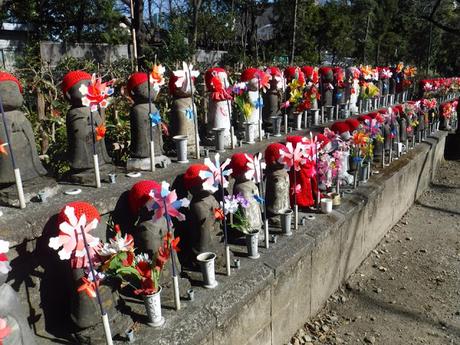
Zojoji
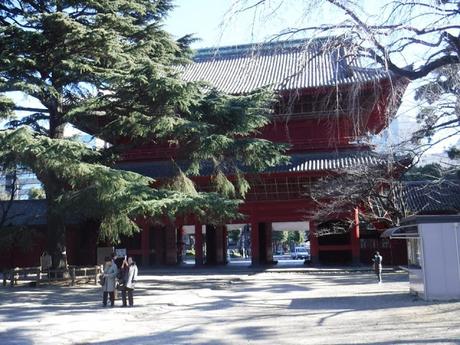
Zojoji
From here we walked to Roppongi though a mixed neighbourhood of modern skyscrapers and smaller family homes. Tokyo seems to be a city that really does mix old and new, large and small. We often speculated over the history of a row of buildings where perhaps an old family home had remained whilst modern towers were erected. Clearly later some of these homes also made way for newer buildings, which lead to tall slender apartment blocks.
Tokyo Midtown is a newer development of towers, a park and shopping centre, and it was here we grabbed a bite to eat, in a Thai cafe that was catering for the office workers above. Wandering into the supermarket in the shopping center here we were taken by the presentation (and price) of fresh fruits.
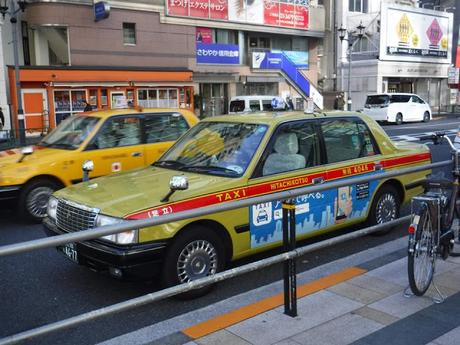
Taxi in Midtown
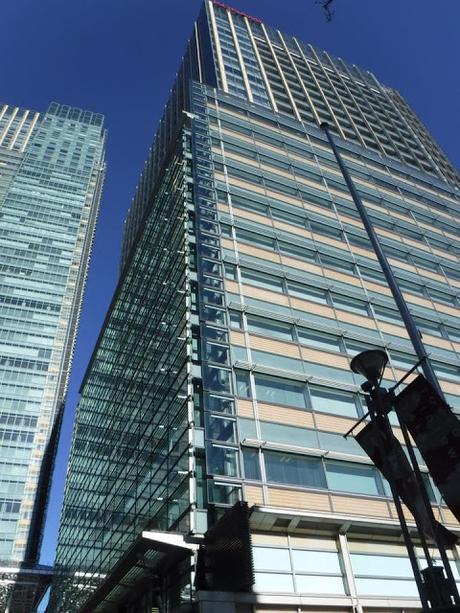
One of the many buildings in the Tokyo Midtown complex
Taking the metro again we headed to Yogogi station for a walk through to Meiji Shrine.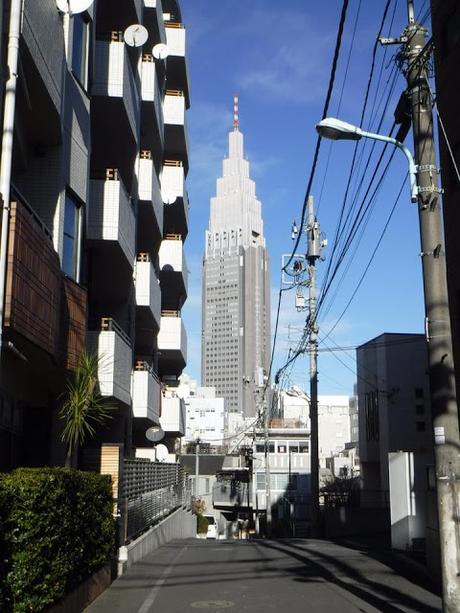
NTT DoCoMo Yoyogi Building
The shrine was completed and dedicated to the Emperor Meiji and the Empress Shoken in 1920, eight years after the passing of the emperor and six years after the passing of the empress. The shrine was destroyed during the Second World War but was rebuilt shortly thereafter.Emperor Meiji was the first emperor of modern Japan. He was born in 1852 and ascended to the throne in 1867 at the peak of the Meiji Restoration when Japan's feudal era came to an end and the emperor was restored to power. During the Meiji Period, Japan modernized and westernized herself to join the world's major powers by the time Emperor Meiji passed away in 1912.
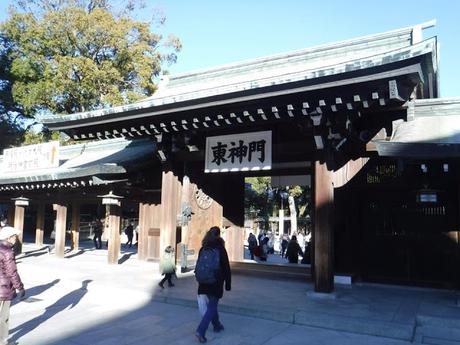
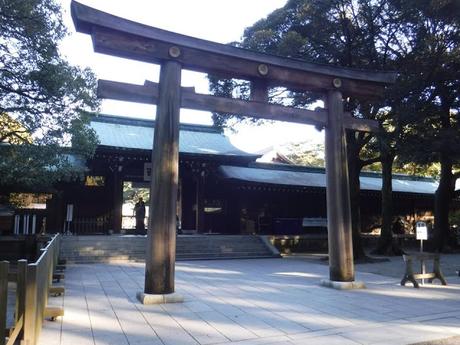
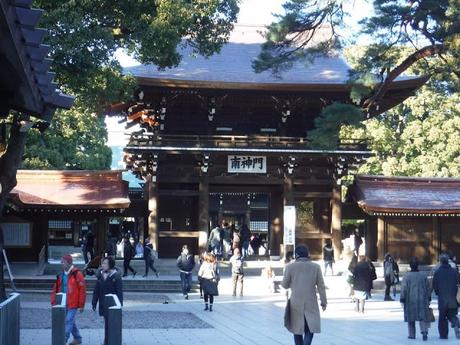
Continuing on to Harajuku and the pop culture lanes around the station. We dropped into a toy shop to buy Pokemon and Hello Kitty toys for my niece and nephew. My nephew now being old enough that having a Pokemon toy all the way from Japan somehow makes it extra special. I won't point out the "Made in China" tag on the toy and all the ones he has from UK toy shops.
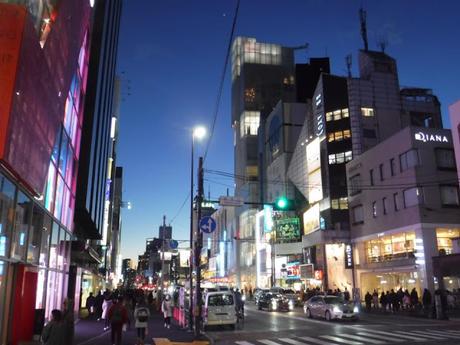
Harajuku
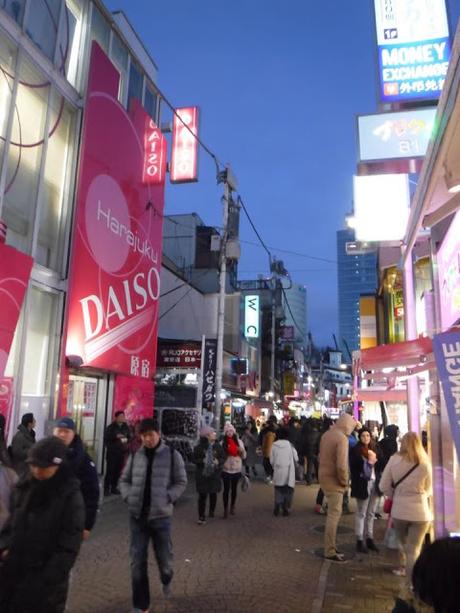
Harajuku
Still not complete for the day our next trip was to to Shibuya crossing. highlighted in all the guide books as being an insanely busy crossing surrounded by neon lights and bill boards. Tokyos answer to Piccadilly Circus or Times Square. Laughing at the absurdity of visiting a location simply to cross the road - several times so adding to the crowds we left for the final destination of the day, Shinjuku.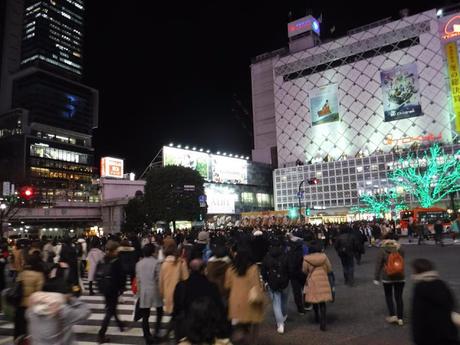
Shibuya crossing
Shinjuku was where gracile Hotel was located, that of the Godzilla statue mentioned previously. In the heart of Tokyos red light district and packed with tourists, locals and noisy arcades I'm somewhat relieved we opted for the quieter calm in Ginza.Shinjuku itself though is well worth visiting, bright lights, Robots, upmarket boutiques and stores, 'relaxation centres' as well as one of the worlds busiest train stations (3 million people reportedly use it every day) make this the stereotypical Tokyo neighbourhood. We came back a couple more times during our visit to both soak up the atmosphere and to eat in one of the many traditional lanes.
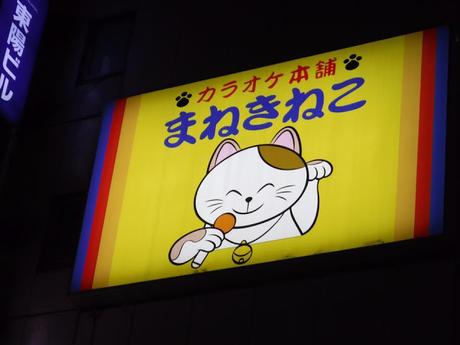
Cat karaoke
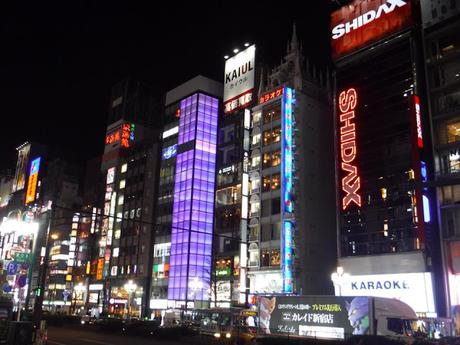
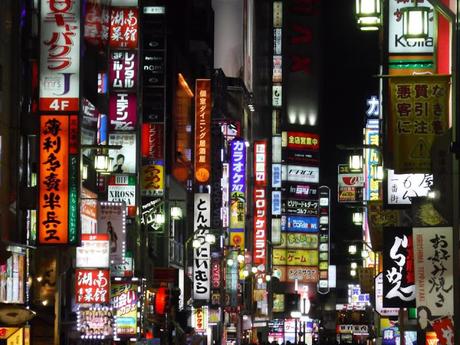
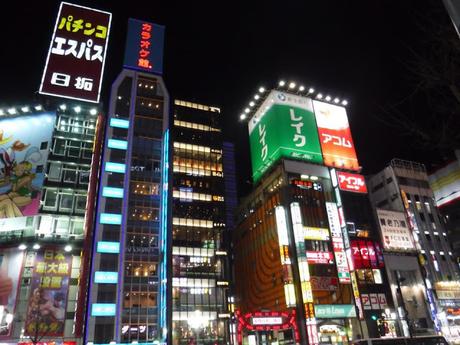
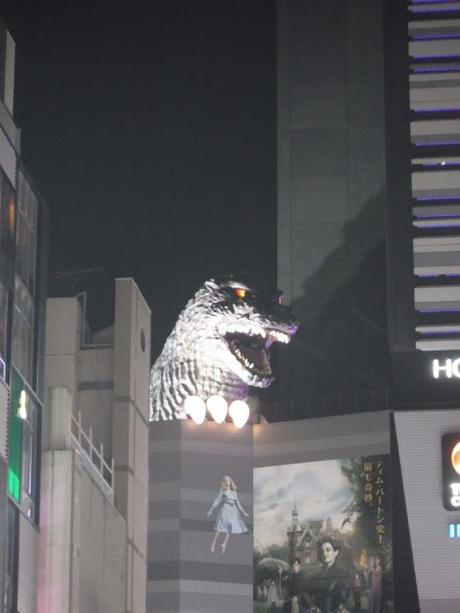
An evening meal of pork balls and squid balls finished off the evening.
At the end of a long busy day we jumped on a metro back to Ginza.
Gaz

